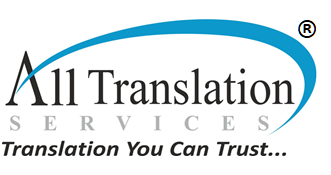What Makes a Great Translator in 2025?
More Than Words: Master the Skills That Define a Great Translator in 2025
The world of language translation is evolving rapidly—and so should translators. In 2025, with globalization expanding and industries becoming more specialized, being bilingual alone is no longer enough. Clients are looking for accuracy, speed, cultural intelligence, and subject expertise—and they’re trusting language service providers like us to deliver it.
Whether you’re a seasoned translator or just starting your journey, the question remains: What truly makes a translator stand out today? Here’s a roadmap not just for impressing clients, but for becoming the kind of translator others aspire to be.
Linguistic Mastery—Beyond Fluency
A great translator doesn’t just know two languages—they understand how both languages work at a deep, structural level. Grammar, idioms, syntax, tone, regional variants, formal vs. informal usage—these must come as second nature. In 2025, machine translations are improving, but what separates a human is nuance and judgment.
Tip for Translators: Regularly read high-quality publications, literature, and industry content in both your source and target languages. The richer your vocabulary and contextual awareness, the more precise your translations will be.
Subject-Matter Expertise
If you’re translating medical, legal, technical, or financial content—you must speak the language of the profession, not just the language of the country. Clients today expect translators to understand industry-specific terms, regulatory language, and documentation formats.
Tip for Translators: Specialize. Don’t try to be everything for everyone. Pick one or two domains (e.g., life sciences, law, IT) and build deep expertise. Read whitepapers, attend webinars, and subscribe to industry updates in your target field.
Cultural Intelligence
The best translation is not a word-for-word copy—it’s a cultural adaptation. You need to consider the audience’s sensitivities, preferences, reading habits, and even humor. In 2025, where brand reputation is global, culturally incorrect or insensitive translations can do real damage.
Tip for Translators: Learn about the history, values, etiquette, and evolving social norms of both source and target cultures. Translating for the Middle East? Japan? Latin America? One phrase might have very different implications in each region.
Research Skills and Resourcefulness
Every great translator has, at some point, paused and thought: “What does this really mean?” The difference is that a great translator knows how to find the answer—quickly and accurately. They don’t make assumptions; they verify.
Tip for Translators: Build a personal toolkit of trusted resources—industry glossaries, official term banks, style guides, government websites, and forums. Also, learn how to fact-check and cross-reference sources.
Attention to Detail and Consistency
In translation, small mistakes can cause big misunderstandings. A misplaced decimal point, a wrongly interpreted legal clause, or inconsistent terminology can erode trust. Professional translators are known for their accuracy, consistency, and clean formatting.
Tip for Translators: Use CAT tools wisely—not just for speed, but for term consistency. Maintain your own termbase. Always proofread your own work and develop an internal checklist before delivery.
Tech-Savviness
In 2025, the translator’s desk includes more than a dictionary. You’re expected to work with CAT tools, translation management platforms, QA tools, file conversion software, and sometimes even subtitle editors or localization platforms.
Tip for Translators: Stay up-to-date with the tools your clients use. Learn at least one CAT tool thoroughly (like SDL Trados, MemoQ, or Smartcat), understand file formats (like JSON, XML, InDesign), and never fear a new platform—embrace it.
Professionalism and Communication
Being a great translator also means being a reliable partner. Responding on time, meeting deadlines, asking questions when needed, and keeping confidentiality are traits that set trusted professionals apart.
Tip for Translators: Build long-term relationships by being transparent and professional. Don’t just “submit work”—communicate actively, clarify doubts, and be open to feedback. A great translator knows that translation is a collaborative craft.
Willingness to Learn and Evolve
Finally, great translators are not stuck in their ways. They’re constantly learning, adapting, and evolving with language trends, AI innovations, client expectations, and cultural shifts. What worked in 2020 may not work today. Lifelong learning is key.
Tip for Translators: Attend online translation conferences, follow linguist communities, take short courses, and invest in self-growth. The more you learn, the more valuable you become.
Final Thoughts
If you’re a translator reading this and thinking, “Yes, this resonates—I can do more,” then you’re already on the right path. The best translators are always looking to improve—not just because the industry demands it, but because they genuinely care about delivering quality.
At our language services company, we partner with passionate and professional translators who embody these values. Whether you’re a translator aiming to grow, or an organization seeking high-quality translation services—we’re here to bridge the gap between languages with precision, cultural understanding, and trust.
Need expert translation support? Contact us today to know how our services can meet your language needs—across any domain, any language, and any region.
